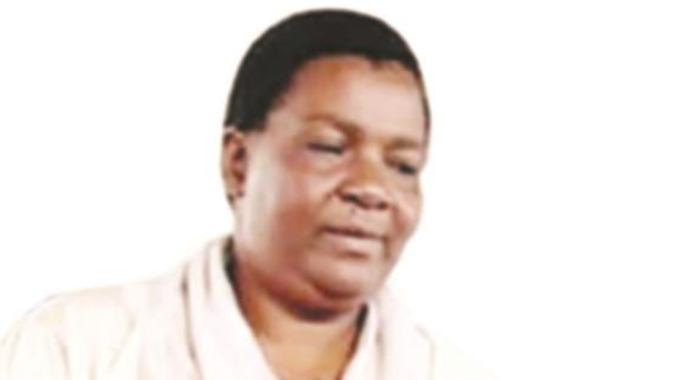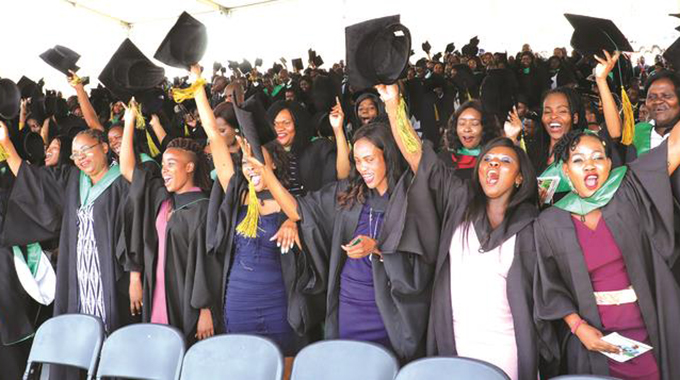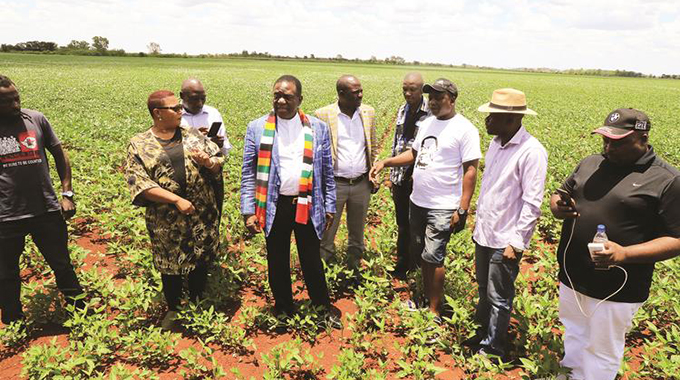‘Schools’ grocery demands unacceptable’

Cletus Mushanawani Interview
CM: Most parents are now preparing for the 2020 First Term and most schools have come up with astronomical school fees hikes, way beyond the reach of many parents. What is the Government’s position regarding the fees hikes?
TT: We have Statutory Instrument 159A of 2007 that gives the official requirements for the approval of fees. According to this instrument, schools that wish to increase fees and levies need to submit their applications to the Secretary for Primary and Secondary Education and approval has to be received by the schools before any increases are effected. In order for the Secretary to appreciate the basis upon which the fees and levies are calculated, schools need to submit, together with their application, the following: current audited accounts; minutes of a properly constituted meeting of no less than 20 percent of the School Parents Assembly and proposed budget.
CM: Some schools have gone to the extent of requesting groceries from parents, it now means that education is now for the elite since most parents are struggling to buy at least basic commodities for the families. As the parent ministry, what is the policy regarding the issue of parents providing groceries for their children at boarding schools?
TT: Requesting parents to bring groceries to schools is unacceptable. Groceries are supposed to be purchased from the boarding fees that are paid by the parents. May I take this opportunity to advise the schools that are doing so to desist from requesting groceries from parents.
CM: Most schools are continuously disregarding well-documented policies, what are the punitive measures in place to ensure that errant behaviour by school authorities is kept under check?
TT: Measures are obviously taken against any member for any act of misconduct. These measures will depend on the gravity of the case and the nature of the case itself. We treat each case differently, depending on the offence committed
CM: School fees top-ups are now becoming a perennial issue, by what percentage can a school hike its fees per term or a year?

Treasury this year released $26 million which was used to finance the design and construction of innovation hubs. Here, President Mnangagwa is taken on a tour of one of the innovation hubs
TT: Apart from the requirements as indicated in the Statutory Instrument 159A, increases in school fees are determined by the prevailing economic circumstances, and perhaps individual schools’ development plans. However, Statutory Instrument 159A of 2007 is the guiding document.
CM: Tuition fees at primary schools have been pegged at $10 and no longer enough to buy basic needs at schools. Is Government working on a review or there are measures being put in place to cushion the schools?
TT: We understand that $10 might not make any meaningful impact given the prevailing economic situation. However, the $10 tuition only applies to Government schools. Please note that, over and above the $10, SDCs agree on developmental levies to be collected.
CM: There was talk of free basic education. Are we going to see this programme being rolled out in 2020?
TT: Government has put measures to ensure that we progressively achieve the goal of free basic education. In 2020, we are likely to pilot with some schools as provided for in the Budget.
CM: Most schools are struggling to acquire basic learning materials for the learners and teaching materials resulting in a high learners-book ratio, what is the ministry doing to address this situation especially in rural schools?
TT: The Competence- based Curriculum calls for basic teaching and learning materials, not only books but learning area specific equipment such as science kits, agriculture and design technology equipment. We are grateful that the central Government continues to support this aspect under limited fiscal space. Since 2017, the ministry has been working with parents and non-State actors to provide teaching and learning materials. Priority was given to the most disadvantaged schools; the majority of them being rural schools.
CM: The 2019 Grade Seven pass rate went down to about 46 percent, is it a sign that the learners are struggling to grasp the concepts of the new curriculum especially languages and Agriculture?
TT: The 2019 Grade Seven learners were examined using the old curriculum. Those that are going to sit for Grade Seven next year (2020) will still be examined under the old curriculum. So, it may be incorrect to attribute the drop in pass rate to the competence-based curriculum. There are many variables that could have contributed to the drop in pass rate such as teacher availability, learning materials availability, etc. As we are carrying out an analysis of the results, we are also looking at the possible reasons that could have led to the drop in pass rate.
CM: Some schools recorded zero percent pass rates, what remedial action is being taken to address this worrying trend?
TT: Provinces have continued to work with partners towards the elimination of zero percent pass rate. The trend has been that schools that are getting zero percent are gradually decreasing. I am yet to check the 2019 results on the extent of the reduction. The ministry and partners will continue to come up with intervention measures for those schools that have challenges in acquiring teaching and learning materials, infrastructure development and shortage of teachers.
CM: Government recently announced that an additional 5 000 teachers will be recruited, how will they be deployed?

Nearly all the country’s State universities produced a record number of graduates this year. Here, some of the 958 Lupane State University graduates celebrate their achievements on graduation day
TT: Deployment of teachers will depend on the number of teachers required per province, district and individual schools. However, the most affected are learners at infant level, particularly Early Child Development. Therefore, the bulk of the teachers will be deployed towards the support of infant learners, especially as the ministry moves towards fulfilling its mandate of developing all the 16 officially recognised languages.
CM: Some schools are paying Early Child Development teachers, will Government absorb these teachers and lessen the burden being faced by parents in meeting their salaries?
TT: It is our wish to progressively lessen the burden on the schools. It is public knowledge that we have a shortage of teachers. In fact, our records have shown that we need about 15 000 teachers for 2020. We were, however, granted authority for 5 000 teachers. We hope that as the situation improves, we will get all the required teachers as the Government continues to fund the recruitment drive.
CM: Private schools and colleges have been mushrooming across the country and parents are complaining that they are now money making ventures. What monitoring mechanisms are in place to ensure that they stick to their mandate of providing education to the learners?
TT: It is ministry policy that all private schools are registered so that they are monitored by the ministry officials for compliance with ministry regulations. Stakeholders can support the ministry by making it aware of such schools so that potential learners are not taken advantage of.
In the event that they defy ministry policies, the ministry reserves the right to de-register them.
CM: The Secretary’s Merit Awards used to provide competition among schools, but it seems they have been stopped, will they be revived in future? Some 2017 winners are still to receive their awards, when will they be presented?
TT: It is incorrect to say the Secretary’s Merit Awards were stopped. In the third term, we were able to attend to three provinces. Lack of funding for the award was the main reason why there was a temporary break. As partners continue to support us, we look forward to completing the outstanding schools in 2020 and to continue having the Secretary’s Merit Awards.
CM: Government was working on an inclusive education policy and officers have gone around meeting various stakeholders, when will this policy be rolled out?
TT: One of the principles of the Curriculum Framework for Primary and Secondary Education 2015-2022 is inclusivity. That principle has been adopted and is being implemented. No learner can be excluded from school on account of his/ her disability or ethnicity or religion.









Comments